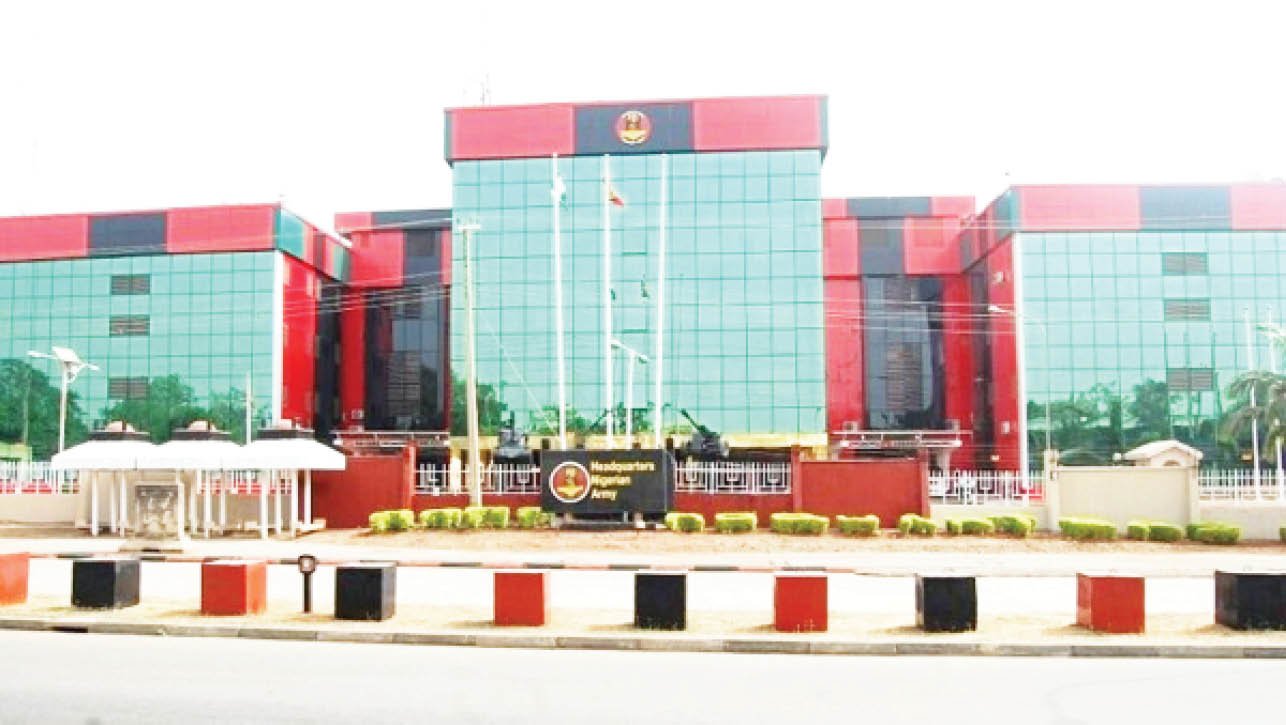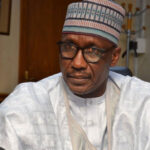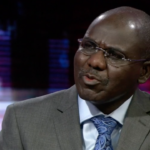Nigeria has lost hundreds of military generals to early retirement since the return of democratic government in Nigeria in 1999, Daily Trust on Sunday reports.
Army generals and those of similar ranks in the navy and air force have been forced to retire. Experts say it is not good for the country.
Based on available records, most of the generals that were asked to leave the scene were active, vibrant, had age on their side with a lot to offer towards protecting the territorial integrity of the country and grooming those coming up.
While it is a natural law for those on top to retire for others to grow, just like what obtains in core civil service, experts said what is happening in the military establishment in Nigeria is different from what obtains in other parts of the world like the United States, United Kingdom and others.
Who should be Tinubu’s minister of defence?
Edo 2024: Group urges parties to jettison zoning
The development, according to pundits, is taking a toll on Nigeria, which is going through security challenges that have continued unabated.
This is aside the enormous resources spent on them to attend various trainings around the world.
They also faulted Nigeria’s poor approach to keeping reserve officers who may be ordered to return to active duty when the need arises.
You can’t see this elsewhere – Sheikh Gumi
In Nigeria, whenever there is a new government, there is the high probability that many generals would be compulsorily retired.
“This thing (early retirement) started in 1999 when these positions were politicised,” said Sheikh Ahmad Gumi, an Islamic scholar and medical doctor who retired as a captain in the Nigerian Army. He said this during Trust TV’s Daily Politics programme recently.
“They (military establishments) have lost their professionalism. People look at their regional affiliations, ethnic or religious inclination, not only the qualified professional acumen that is supposed to be of such institution,” he said.
On whether retiring and promoting officers to higher ranks by new governments is a norm all over the world or it is a Nigerian thing, Sheikh Gumi said, “When Barack Obama became the American head of state, he left all the service chiefs appointed by the Republicans because there was war in Iraq.
“I think we should not touch the military and the judiciary just because there is change of political leadership. Even the civil service is now affected. The position of a permanent secretary is supposed to be purely for professional civil servants, but you find out that it is now also politicised.
“It is very unfortunate. It is a very bad development that we lose officers after training them, some of them abroad. We spend a lot of money to train them on different kinds of warfare, then suddenly, because of ethnic, religious or regional consideration, many of them get retired after the appointment of some officers.
“And we don’t have to put anybody who is a junior just because of his tribe or religion or where he comes from to head such institution, especially in a time when our main problem, the elephant in the room, is the security issue. We need qualified hands, people who have experience, people who understand and are intelligent.”
Speaking on the possibility of recalling retired generals to serve when the need arises because of their expertise, a retired brigadier-general who did not want his name in print because of the sensitive nature of the matter said, “The United States and other countries have reserve military officers. In most cases, they are called upon for support. Most of those who resign for some reasons or retire are willing to come back and work for a certain period. They find relish in doing so because their disengagement was not haphazard in the first place.
“This is not the case in Nigeria and few other places where the active lifespan of a finest officer would be cut short for some reasons, mostly political. Some of the officers become disgruntled and completely disinterested. We need to revive the culture of ensuring that officers have a happy ending in their career. It helps in nurturing trust, patriotism, selflessness and professionalism.”
Retirement now a ritual
Although there was no exact number of generals retired between 1999 and now, findings revealed that the number runs into hundreds.
All Nigeria’s presidents in this dispensation – Olusegun Obasanjo, Umaru Yar’adua, Goodluck Jonathan, Muhammadu Buhari and recently, Bola Ahmed Tinubu, retired generals compulsorily. While some made it public, others did theirs quietly.
Recent findings by Daily Trust on Sunday revealed that not less than 200 senior officers have exited the three services following the recent appointments by President Tinubu. The military high command said it was computing the exact number of those who have exited.
Specifically, experts described as huge, the cost of training a military man to become a senior officer on the rank of lieutenant-colonel, colonel, brigadier- general or major-general in the Nigerian Army or its equivalent in the Navy and Air Force.
The senior military officers that are normally being retired usually serve as General Officer Commanders (GOCs), Air Officer Commanders (AOCs), Flag Officer Commanders (FOCs) and in other critical positions at different formations.
They lost out following appointment of their mates or juniors to the topmost positions in the three services of the country’s armed forces.
The four topmost positions include Chief of Defence Staff, Chief of Army Staff, Chief of Air Staff and the Chiefs of Naval Staff.
Ideally, and in line with long-standing tradition, military officers are not expected to take orders from their mates or seniors.
Obasanjo sacked 93 officers
On Friday, June 11, 1999, less than two weeks after ex-president Olusegun Obasanjo was sworn in as the newly elected democratic president, he ordered the compulsory retirement of 93 senior military officers across the three services in the country’s armed forces.
Notable among those who were sacked were Olagunsoye Oyinlola and Buba Marwa. However, the real reason the then President Obasanjo sacked these officers was not known until 18 years later, in 2017, while celebrating his 80th birthday in Abuja.
Obasanjo told attendees during the event that the military he met then as president would have created more problems for the country and the democracy that ushered in the Fourth Republic would not have lasted to produce more presidents after him.
Daily Trust on Sunday recalls that when Obasanjo assumed office as president, he asked the military to submit the list of every officer who had either participated in a coup or benefitted from it through appointment to political offices as ministers or governors.
Oblivious of what the list was meant for, the military acceded to Obasanjo’s request and quickly submitted the names – 93 in all.
Immediately, all the officers were given a six-hour notice of retirement on a Friday, with a presidential order not to spend the night in uniform or in barracks.
On Monday, June 14, 1999, the Service Council met to ratify the retirement of the affected officers. The president then went ahead to appoint Lieutenant-General Victor Malu (Army), Vice Admiral Victor Ombu (Navy) and Air Marshal Isaac Alfa (Air Force).
Yar’adua retired 40 generals
Two months after he was sworn in as president, the late Umaru Musa Yar’adua ordered at least 40 generals to leave the service.
Speaking at the Villa then, Yar’adua said the affected generals had reached their retirement age – the same explanations offered by the Defence Headquarters at the time.
Dozens fired in 2016
Apart from usual appointments that make senior military officers to go on compulsory retirement, dozens of senior officers were asked to leave the military by the immediate past president, Muhammadu Buhari.
Officers who were familiar with the matter then and spoke to Associated Press on condition of anonymity confirmed that more than 50 officers were sacked.
But the army spokesman at the time, Colonel Sani Kukasheka Usman, said that “quite a number” were sacked and they were mainly major generals, brigadier-generals, colonels, lieutenant-colonels and one major. Usman did not name those fired.
Prior to that time, former President Goodluck Jonathan also relieved some top military brass when he changed the service chiefs.
It’s not good for national economy – ex-NAF spokesman
Reacting to the development, a former spokesman of the Nigerian Air Force, Sadeeq Shehu, said there might be possible repercussions of retiring hundreds of generals from the Armed Forces of Nigeria.
Shehu, who was reacting to the recent exit of scores of the top military brass, specifically said it was not good for the economy of the country.
“When you look at the money in training these people, whether on foreign courses or here in Nigeria, the experience we are losing and the money we are wasting on these people, then telling them to go, it is not good for national economy,” he said.
The retired senior officer noted that retiring about 100 generals may have a way of crumbling the Nigerian military.
He said, “If you follow the structure of the military pyramid, whoever is the president and commander in chief, you have already given him a few number of top quality officers he can choose from.
“A situation where the president comes and he has over 300 major generals to pick from, you have not helped him.
“The problem is not the president himself. In fact, if you look at the literary meaning of section 217 on the appointment of service chiefs, as it is now, the president can even pick a colonel and say this is my service chief. He picks whoever he wants.
“The structure of the Nigerian military is bloated, no other country can afford to retire 100 major generals without crumbling their military.”
DHQ reacts
Reacting, the military high command officially confirmed that generals from the Army, Navy and Air Force had indicated their intention to retire following the appointment of their juniors as service chiefs.
Following their appointment, generals who were senior to the new service chief and some of their course mates were expected to exit the service.
Already, military officers who were course mates of the former service chiefs, notably, Courses 37 and 36, had exited the military.
Responding to Daily Trust on Sunday’s question in Abuja, the acting Director of Defence Information, Brigadier-General Tukur Gusau, said the affected officers from the three services had already turned in their application for voluntary retirement.
“From day one that you got admitted into the Nigerian Defence Academy (NDA), you know your seniors and juniors. When your junior is appointed a service chief, you have to put in your retirement papers. So, I confirm to you that officers have put in their application for voluntary retirement.
“Officers put in their applications for voluntary retirement and got responses from the various military secretaries. When we get the number we will let you know,” he said.

 Join Daily Trust WhatsApp Community For Quick Access To News and Happenings Around You.
Join Daily Trust WhatsApp Community For Quick Access To News and Happenings Around You.


